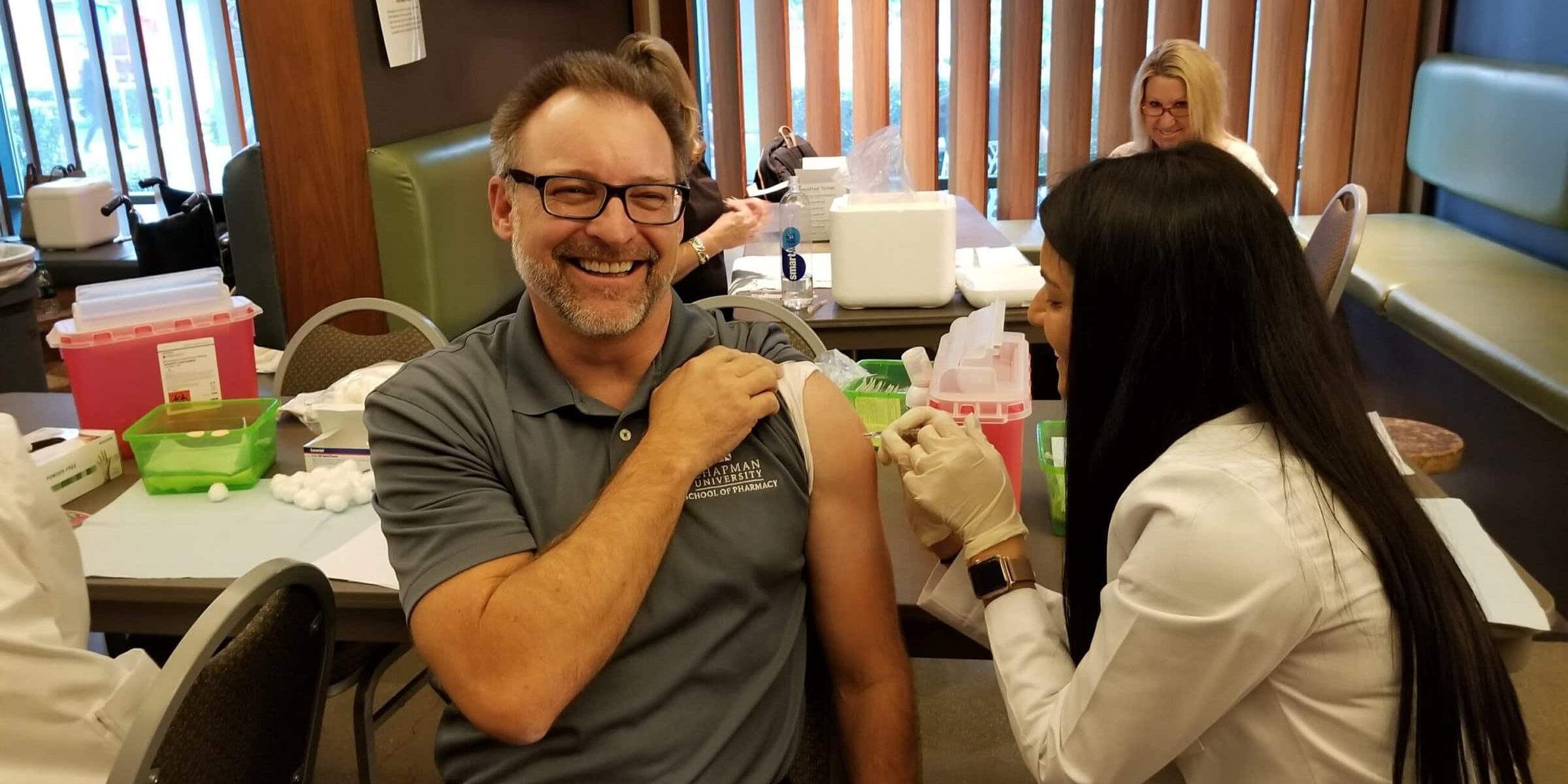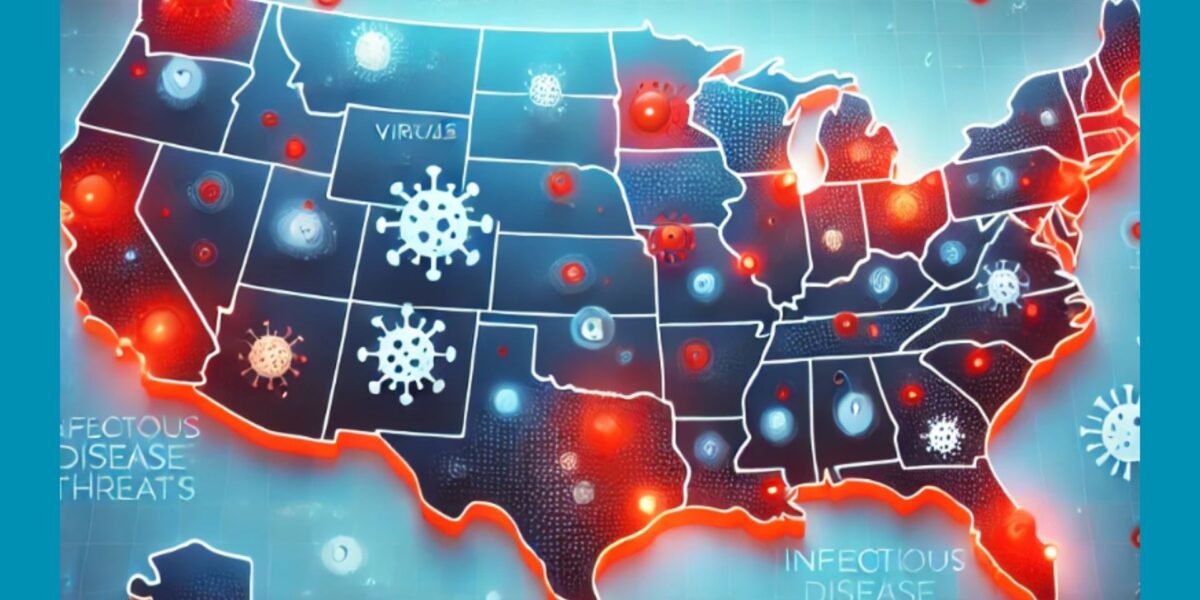
Special thanks to NFID Director, Jeff A. Goad, PharmD, MPH, professor and chair, Chapman University School of Pharmacy, for this guest blog post updating the challenges pharmacists face in providing immunization services.
The American Pharmacists Association (APhA) and National Alliance of State Pharmacy Associations track the types of vaccines that pharmacists are authorized to administer on a state-by-state basis. Since an earlier blog post in 2015, only two additional states have allowed pharmacists to administer all vaccines recommended by the Advisory Committee on Immunization Practices (ACIP).
While 46 states currently allow pharmacists to administer all vaccines recommended by ACIP and all 50 states allow influenza (flu) vaccines to be given, many states continue to place barriers between patients and pharmacists as immunizers, primarily by age and/or prescription restrictions.
The types of vaccines that pharmacists are able to administer vary greatly between states. For example, three states (Connecticut, Florida, and Vermont) currently prohibit pharmacists from administering vaccines to those under 18 years of age. New York recently changed their law to allow pharmacists to administer flu vaccine to those age 2 years and older. Florida restricts administration of vaccines to those age 18 years and older, while its neighbors, Georgia and Alabama, currently have no age restrictions.
Are pharmacists in Florida really that different from those in neighboring states? In the US, all pharmacy schools are held to the same accreditation standards and all graduates receive a doctor of pharmacy (PharmD) degree. APhA also offers a national immunization training program, which has trained more than 300,000 pharmacists and student pharmacists to date. So, the answer is no, they are not so different. What is different are antiquated state laws that are leaving residents at risk.
Many states also limit the ways that pharmacists obtain authorization to administer vaccines. In 26 states, pharmacists are required to obtain a prescription from a licensed prescriber in order to administer certain vaccines for select age groups. This is time consuming for both the pharmacist and patient and wastes significant healthcare dollars. Moreover, it can become a significant barrier for patients who don’t have a primary care provider. Pharmacists are highly trained in immunization and pharmacies offer maximum convenience for patients, thus state laws need to change to allow pharmacists to independently determine who needs vaccination and then to vaccinate, as they currently can in 18 states.
 Additionally, pharmacists can make a significant impact in increasing vaccination rates. For example, HPV vaccine completion rates in the US for the 3-dose or 2-dose series are low—49% overall. HPV vaccination prevents 90% of cervical cancer and genital warts, so it is especially important that we aren’t adding additional barriers to completion by limited access to pharmacy-based vaccination. But, New York and New Hampshire do not currently allow pharmacists to administer HPV vaccine for any age or under any circumstances. HPV vaccination is recommended at 11-12 years of age for both boys and girls, but 25 states limit a pharmacist’s ability to immunize patients younger than 13 years of age. Pharmacists can, and should, play a key role in effectively helping adolescents get a vaccine that can save their life by preventing cancer.
Additionally, pharmacists can make a significant impact in increasing vaccination rates. For example, HPV vaccine completion rates in the US for the 3-dose or 2-dose series are low—49% overall. HPV vaccination prevents 90% of cervical cancer and genital warts, so it is especially important that we aren’t adding additional barriers to completion by limited access to pharmacy-based vaccination. But, New York and New Hampshire do not currently allow pharmacists to administer HPV vaccine for any age or under any circumstances. HPV vaccination is recommended at 11-12 years of age for both boys and girls, but 25 states limit a pharmacist’s ability to immunize patients younger than 13 years of age. Pharmacists can, and should, play a key role in effectively helping adolescents get a vaccine that can save their life by preventing cancer.
ACIP and the National Vaccine Advisory Committee (NVAC) both endorse pharmacists as vaccine providers. Several national medical associations also support the role of pharmacists as vaccinators. The limitations currently lie with state legislatures. As partners committed to increasing US vaccination rates for all recommended vaccines, we must work together to change state laws and help all individuals get the vaccines they need, when they need them, and where it is most convenient to get them!
To learn more about the role of pharmacists in providing immunizations, view these additional resources:
- Pharmacist Authority to Immunize by type of vaccine
- Pharmacist Authority to Administer Influenza Vaccine
To join the conversation and get the latest news on infectious diseases, follow NFID on Twitter, like us on Facebook, follow us on Instagram, join the NFID Linkedin Group, and subscribe to NFID Updates.
Related Posts

News Round-Up: Infectious Disease Threats
According to NFID website poll, there are several worrisome infectious disease threats. Read recent news on topics of greatest concern, including avian influenza (bird flu), measles, and respiratory syncytial virus (RSV) …

Vaccines and Heart Health: A Vital Connection
Heart disease can increase the risk of serious or fatal complications from respiratory diseases including COVID-19, flu, and RSV

Harnessing the Power of Local Data
NFID dashboard aims to empower stakeholders with hyperlocal data to increase US adult respiratory vaccine uptake
